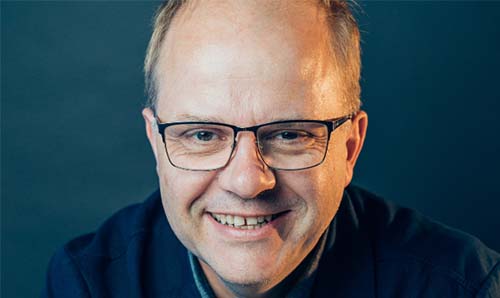
Sustainable development goals (SDGs)
The United Nations’ 17 SDGs are the world’s call to action on the most pressing challenges and opportunities facing humanity and the natural world.

Here at the Humanitarian and Conflict Response Institute (HCRI), we are playing our part in tackling these head-on through research, collaborations and education.
Our teaching explores key debates and policies linked to the SDGs, such as the Sendai Framework for Disaster Risk Reduction.
This provides students with an analytical understanding of policy literature concerning the related issues of humanitarian and conflict response, global health, international disaster management and peacebuilding.
Our impact
A lot of the work that we try to do is engage our co-partners and create knowledge. We maintain independence but maintain a critical stance and critique what makes those institutions function.
Prof Bertrand Taithe / Director of Research, HCRI
HCRI brings together the disciplines of medicine and the humanities to facilitate improvements in crisis response on a global scale, while providing a centre of excellence for practitioners in emergencies and conflicts.
As an Institute, we have responded to international demand for research-informed teaching in humanitarian studies by developing a range of undergraduate and postgraduate courses.
We also have longstanding collaborations with humanitarian organisations including Save the Children, International Federation of Red Cross Red Crescent Societies (IFRC), Mines Advisory Group (MAG), Tata Institute of Social Sciences, and Project Trust.
Alongside the wider university, social responsibility is one of our core values, which has resulted in The University of Manchester being recognised as the best university in Europe and third in the world for societal impact by Times Higher Education.
As a world leader for the study of humanitarian and conflict response, global health, international disaster management and peacebuilding, we are focusing on goal 16 and goal 17.
Goal 16 sets out to promote peaceful and inclusive societies for sustainable development, provide access to justice for all and build effective, accountable and inclusive institutions at all levels.
HCRI brings together a team of multi-disciplinary experts specialising in peacebuilding, conflict, security and justice contributing to this goal via a number of initiatives.
Making peacekeeping data work for the international community
The Making peacekeeping data work for the international community project, which examined how the UN can better use data collected during peacekeeping missions and how wider geopolitical or justice-based interventions might prevent further challenges.
Crucially, the project sought to investigate if the data collected by international organisations matched how people on the ground saw conflict. At heart is an urgent policy question: if international organisations do not respond to the situation on the ground, and local perceptions, then can they sustain their operations?
Everyday peace indicators
For the Everyday peace indicators project, HCRI researchers collaborated with communities affected by war and violence to produce ‘everyday indicators’ of difficult-to-measure concepts, such as peace, reconciliation, and violent extremism.
Taking its cue from studies in sustainable development, the project asks community members to identify their own measures of peace. It is based on the premise that local communities are best placed to identify changes in their own circumstances, rather than relying on external 'experts' to identify indicators for them.
Goal 17 sets out to strengthen the means of implementation and revitalise the global partnership for sustainable development.
HCRI is contributing to goal 17 through its collaborative partnerships with influential organisations such as UK-Med, Médecins Sans Frontières (MSF), Save the Children. HCRI is able to make a meaningful impact in the field and reach many key humanitarian decision-makers through the partnerships.
Journal of Humanitarian Affairs
The new open-access Journal of Humanitarian Affairs is jointly hosted with The Humanitarian Affairs Team at Save the Children UK and MSF (Paris). It contributes to current thinking around humanitarian governance, policy and practice with academic rigour and political courage.
LEAP programme in humanitarian practice
The LEAP programme saw us partner with MSF and Liverpool School of Tropical Medicine to deliver our bespoke higher education programme. LEAP offers varied and flexible courses, which seamlessly integrates world-class higher education into the career paths of humanitarians, with the intention of strengthening leadership within the sector.
Collaboration education
Our robust approach to humanitarian education has also meant we offer a well-established online programme in global health.
This programme has been developed in collaboration with the International Federation of the Red Cross and Red Crescent Societies (IFRC). Our robust approach to humanitarian education has led to this teaching arrangement and we are pleased to contribute to IRFC staff and associate training programmes.
HCRI also deliver The Emergency Humanitarian Assistance (EHA) course, which is undertaken by professionals from NGOs, IGOs and policymakers.
Download The University of Manchester Sustainable Development Goals report or find out more about what The University of Manchester is doing to contribute to SDGs.
You can also watch the video below to find out more about how the SDGs are being tackled across the University.
